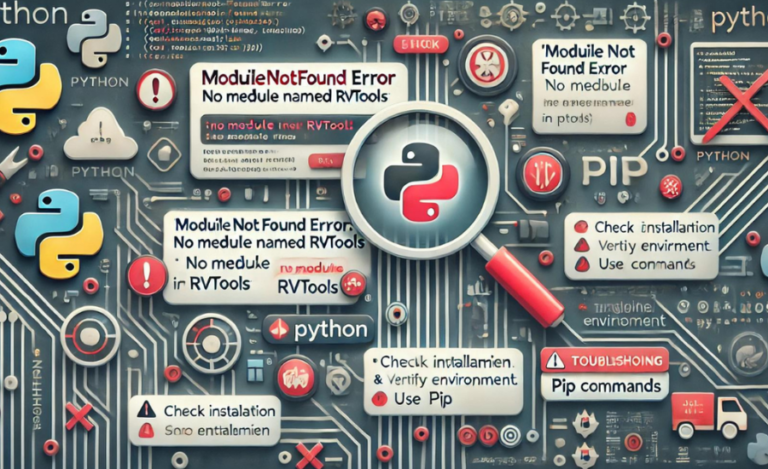Optimizing Business Operations with a NetSuite Developer: Real-World Examples
Erp tool has become one of the best platforms that provides businesses with comprehensive tools to manage financials, operations, and customer relations. However, to maximize the potential of NetSuite, many businesses enlist the help of NetSuite developers. These developers play a crucial role in customizing the system to fit specific business needs, integrating third-party tools, automating workflows, and creating scalable solutions. This article explores how businesses optimize their operations with the help of NetSuite developers, providing real-world examples of impactful transformations.
The Role of a NetSuite Developer
A NetSuite developer’s role is multifaceted, and their expertise spans across customizations, integrations, automations, and application development. They use SuiteScript (NetSuite’s JavaScript-based API) to tailor the platform, SuiteFlow for creating automated workflows, and SuiteTalk for third-party integrations. By working closely with businesses, developers create bespoke solutions that streamline operations, enhance productivity, and improve decision-making.
Below are some key areas where NetSuite developers add significant value to businesses:
1. Automating Financial Processes
Example: Streamlining Invoice Approvals for a Large Manufacturing Company
Problem: A large manufacturing company faced challenges with their invoice approval process, which was manual and error-prone. The approval delays led to missed payments and strained relationships with suppliers.
Solution: A NetSuite developer customized a workflow using SuiteFlow that automated the invoice approval process. By setting up custom criteria based on invoice amounts and vendor contracts, the workflow routed invoices to the appropriate approvers without manual intervention. If the invoice exceeded a certain threshold, an approval was automatically escalated to a senior manager, while lower-value invoices were auto-approved.
Result: The company reduced invoice processing time by 60%, decreased errors, and significantly improved supplier relationships. Additionally, they avoided late payment penalties, saving thousands of dollars annually.
2. Customizing Inventory Management
Example: Inventory Optimization for a Global E-Commerce Retailer
Problem: An e-commerce retailer with a global presence struggled with maintaining accurate inventory levels across multiple warehouses in different countries. Stockouts and overstocking were frequent due to poor visibility into inventory.
Solution: The business hired a NetSuite developer to implement a customized inventory management system within NetSuite. The developer leveraged SuiteScript to create real-time synchronization between NetSuite and the company’s external warehouse management systems (WMS). Additionally, they set up custom alerts that triggered automatic reordering when stock levels fell below predefined thresholds.
Result: The customized solution gave the retailer complete visibility into inventory across all locations, reducing stockouts by 30% and overstocking by 25%. This not only improved customer satisfaction but also led to cost savings from better inventory management.
3. Enhancing CRM Capabilities
Example: Improving Customer Relationship Management for a SaaS Company
Problem: A SaaS company wanted to enhance its customer relationship management (CRM) to improve lead tracking, customer segmentation, and sales pipeline visibility. The default CRM features in NetSuite were not flexible enough for their complex sales cycles and growing customer base.
Solution: A NetSuite developer customized the CRM module to better meet the company’s needs. They developed custom fields to capture critical data points such as lead sources, potential deal sizes, and sales stages. The developer also integrated NetSuite with the company’s email marketing platform, allowing seamless data exchange between sales and marketing teams.
Result: The company gained better insight into their sales pipeline, leading to a 15% increase in conversion rates. The integration with their marketing platform enabled targeted marketing campaigns, increasing engagement and driving more qualified leads into the sales funnel.
4. Integrating Third-Party Tools
Example: Streamlining E-Commerce and Accounting for an Online Retailer
Problem: An online retailer was using Shopify for their e-commerce platform and QuickBooks for accounting. The two systems were not integrated, which meant the finance team had to manually reconcile orders and payments, leading to inefficiencies and occasional errors in financial reporting.
Solution: A NetSuite developer integrated Shopify and QuickBooks with NetSuite using SuiteTalk (NetSuite’s API). By doing so, the developer automated the synchronization of orders, customer information, and payments between the systems. This eliminated the need for manual reconciliation.
Result: The retailer saved 20 hours per week in manual data entry and eliminated errors in their financial reporting. With the new integration, they had real-time access to their financial data, improving decision-making and enabling faster responses to market changes.
5. Optimizing Payroll and Human Resources
Example: HR and Payroll Integration for a Growing Construction Company
Problem: A construction company with hundreds of employees faced challenges in managing payroll and HR processes. Their payroll system was not integrated with NetSuite, causing delays and inaccuracies in payroll processing.
Solution: A NetSuite developer integrated the company’s payroll provider with NetSuite’s HR module, automating the transfer of employee time tracking and salary information. Custom workflows were also implemented to streamline employee onboarding, timesheet approvals, and benefits management.
Result: Payroll processing time was reduced by 40%, and payroll accuracy improved significantly. The company also benefited from a more efficient HR process, enabling faster onboarding of new hires, which was critical for their rapid growth.
6. Improving Reporting and Analytics
Example: Financial Reporting Enhancement for a Healthcare Organization
Problem: A healthcare organization needed more detailed financial reports to comply with regulatory requirements and gain better visibility into their cash flow and revenue streams. The standard reporting features in NetSuite weren’t sufficient to meet their complex needs.
Solution: A NetSuite developer built custom financial reports using SuiteAnalytics. These reports included key performance indicators (KPIs) such as department-wise expenses, patient billing trends, and cash flow projections. The developer also set up automated report generation and scheduled email delivery to key stakeholders.
Result: The organization gained actionable insights into its financial performance, enabling better financial planning and regulatory compliance. The automated reports saved hours of manual report preparation each month and improved decision-making across departments.
7. Optimizing Supply Chain Management
Example: Supply Chain Optimization for a Manufacturing Firm
Problem: A manufacturing firm was struggling with inefficiencies in their supply chain, particularly around procurement, supplier management, and delivery times. There were frequent delays in production due to inconsistent supply of raw materials.
Solution: A NetSuite developer customized the procurement module to automate purchase orders based on real-time inventory levels and production schedules. They also integrated NetSuite with the suppliers’ systems, enabling better communication and real-time tracking of orders and shipments.
Result: The company reduced production downtime by 25% and improved supplier relationships by providing accurate, real-time updates. The automation of purchase orders reduced administrative overhead and allowed the procurement team to focus on strategic sourcing.
8. Customizing Workflow for Tax Compliance
Example: Automating Tax Calculation and Compliance for an International Retailer
Problem: An international retailer needed to comply with varying tax regulations across multiple countries. Manually calculating taxes for each jurisdiction was time-consuming and error-prone.
Solution: A NetSuite developer integrated the retailer’s system with a third-party tax compliance tool. They also created custom tax workflows that automatically applied the correct tax rate based on the customer’s location and the type of product being sold.
Result: The retailer automated tax calculation for thousands of transactions per month, reducing errors and ensuring compliance with international tax regulations. This eliminated the need for a dedicated team to handle manual tax calculations, saving time and resources.
Last Words
NetSuite developers provide businesses with the tools to optimize operations across various domains, including finance, inventory, customer relations, supply chain, and HR. By customizing workflows, integrating third-party tools, and automating processes, businesses can improve efficiency, reduce errors, and scale more effectively. Whether it’s streamlining inventory management for a global retailer or enhancing financial reporting for a healthcare organization, NetSuite developers play a crucial role in driving business success.
By leveraging the expertise of NetSuite developers, businesses of all sizes can unlock the full potential of their ERP system, enabling them to stay competitive in today’s dynamic marketplace.
Transform your supply chain with automation and efficiency-driven ERP solutions—get started at Blog Blower!






